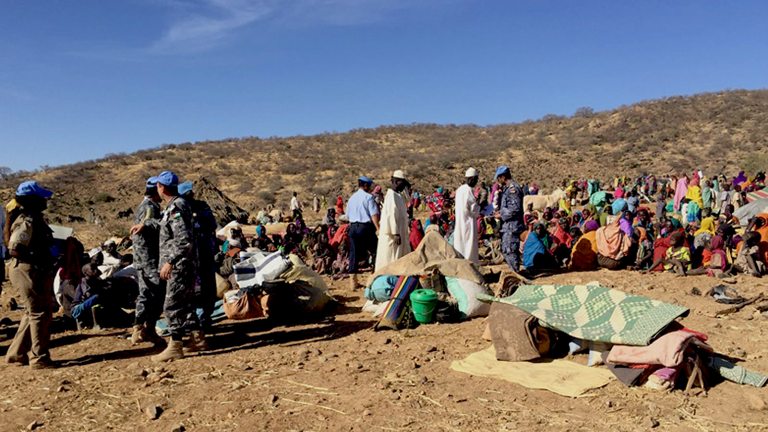UN reports on malnutrition in Jebel Marra “contradictory”: official

July 28, 2017 (KHARTOUM) – The government of Central Darfur state has underscored the security, humanitarian and food situation in the locality of Gulu, Jebel Marra area, is stable describing the UN reports in this regard as “contradictory”.
In its weekly bulletin on 24 June, the U.N Office for the Coordination of Humanitarian Affairs (OCHA) said a recent survey conducted by the UN Children’s Fund (UNICEF) found critical levels of acute malnutrition in Jebel Marra.
However, at the time, health minister of Central Darfur state, Musa Khatir, said the UNICEF report is “inaccurate”, pointing the UN body issued its report without consulting with the official organs on the authenticity of the information.
Also, the U.S. embassy in Khartoum has expressed concern about “the alarming malnutrition rates and deteriorating humanitarian situation in the Jebel Marra”, saying “the lives of thousands of children and vulnerable adults are at stake”.
“Recent nutrition screenings and surveys show critical levels of severe acute malnutrition indicating a complex humanitarian crisis that demands an urgent, multi-sector response,” said the embassy in a statement released on Tuesday
The semi-official Sudan Media Center (SMC) Friday quoted Central Darfur’s humanitarian commissioner Ismail Adam as saying the UN claims about malnutrition in Gulu are incorrect.
He stressed the area is stable following the end of the rebellion, pointing the government has full control over Jebel Marra since last year and most of the rebels have joined the peace process.
Adam added the UN contradicts itself when it reports about malnutrition cases in Gulu, saying representatives from the World Food Programme (WFP) have visited the area and acknowledged the health and food situation is stable.
He pointed out that several officials from the European Union (EU) have also visited the area and underlined the stability of the humanitarian situation.
The humanitarian official disclosed the Central Darfur government has received requests from known foreign aid groups to open offices in Gulu area, saying these requests are under consideration.
On July 14, the humanitarian official at the Darfur Refugees and IDPs Association Salih Idris told Sudan Tribune that “malnutrition cases among children and the elderly are growing continuously”.
He attributed the spread of the disease among IDPs to the 60% reduction of food rations provided by the WFP, since more than two years, saying the move has adversely impacted on the IDPs health conditions especially children.
Idris pointed out that foreign aid groups had left the region following pressures from the Sudanese government.
Immediately after the first arrest warrant of the International Criminal Court (ICC) against Sudan’s president Omer al-Bashir in March 2009, Sudan expelled 13 aid groups from Darfur accusing it of collaborating with the war crime courts.
Since then, the activities of foreign aid group in Darfur are strictly controlled and more organisations were evicted through the years.
Sudan refuses to allow new aid groups to work in the region.
U.N agencies estimate that more than 120,000 people have been displaced by the fierce clashes which occurred last year between the government army and the rebel Sudan Liberation Movement (SLM-AW) led by Abdel-Wahid al-Nur in Jebel Marra.
Jebel Marra, which spans over three states including North, Central and South Darfur, is located in a water-rich area that is characterized by the mild climate.
On 12 April 2016, the Sudanese army declared Darfur a region free of rebellion following the capture of Srounq area, the last SLM-AW stronghold in Jebel Marra.
(ST)
